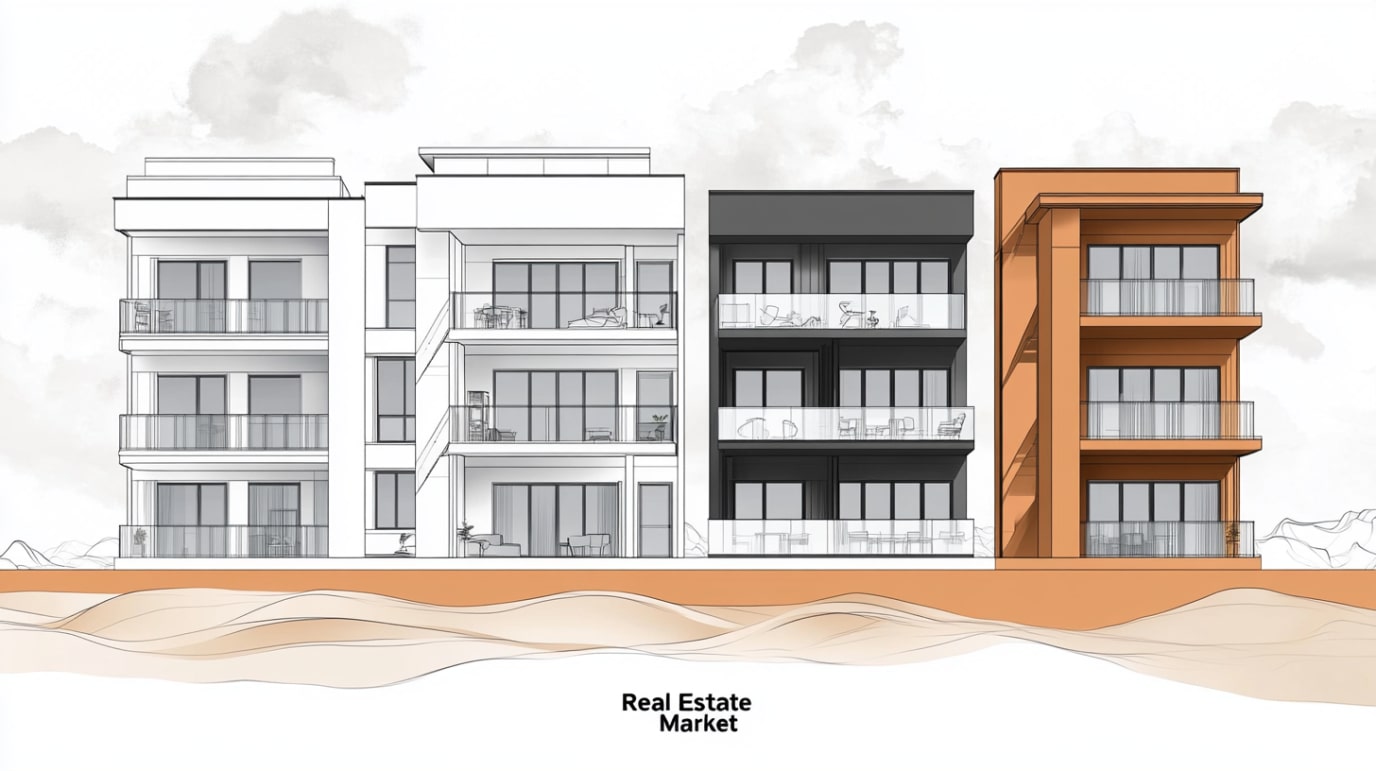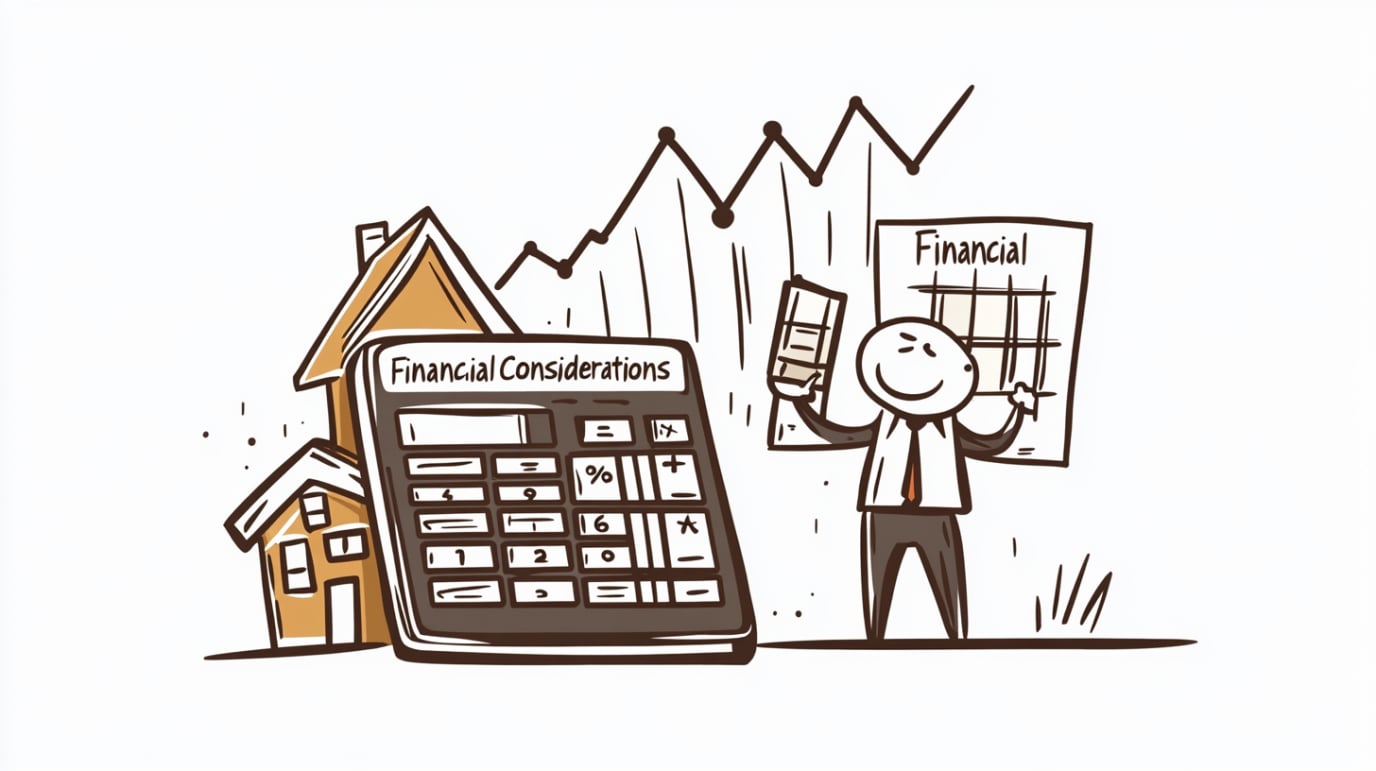Why Dubai?
Overview of Dubai’s Real Estate Market
Real estate booming market of Dubai in which both residential and commercial requirements have caused high demand during the past year. Property prices increase by X% in 2023, indicating the trend towards attracting investments in real estate. The location of the city between Europe, Asia, and Africa is still its claim to fame as a global business hub. Areas such as Downtown Dubai, Dubai Marina, and Palm Jumeirah are increasing as real estate attractions among local and international investors.
Key Benefits of Starting a Real Estate Business in Dubai
Starting a real estate business in Dubai offers several advantages:
- High Rental Yields: Dubai’s rental yields are among the highest globally, with an average yield of X% in 2023, making it an attractive market for investment.
- Tax Incentives: Dubai’s tax-free environment, with no personal income tax, capital gains tax, or property tax, enhances profitability for businesses.
- Strong Demand: The demand for both residential and commercial properties remains robust, driven by a growing population and continued infrastructure development.
These benefits make Dubai an ideal destination for starting a real estate business, offering immense growth potential and financial rewards.
Understanding the Real Estate Market in Dubai

Types of Real Estate Opportunities
Dubai’s real estate market provides a variety of investment opportunities, including residential, commercial, industrial, and hospitality sectors. Here’s an overview:
Residential
Dubai’s residential market remains one of the most sought-after investment areas. Properties range from luxurious villas to affordable apartments. In 2023, the average price per square foot for an apartment in Downtown Dubai was around AED 1,800, while in more affordable areas like International City, the price per square foot was closer to AED 600. Notable developments include:
- Villas in Palm Jumeirah: Prices for villas in this prime location range between AED 10 million to AED 50 million depending on the size and design.
- Apartments in Dubai Marina: One-bedroom apartments are averaging AED 1.5 million, with two-bedroom units going for approximately AED 2.7 million.
Commercial
The demand for commercial properties remains strong, driven by Dubai’s status as a global business hub. In 2023, the average rent for office space in Business Bay was AED 120 per square foot annually, while in Dubai International Financial Centre (DIFC), prime office spaces can command up to AED 250 per square foot annually. Retail spaces in high-traffic malls like The Dubai Mall or Mall of the Emirates can see rents ranging from AED 200 to AED 500 per square foot, depending on the location and visibility.
Industrial
Dubai’s industrial sector is booming, largely due to the city’s logistics and trade importance. Key industrial zones like Jebel Ali Free Zone and Dubai Investments Park (DIP) have seen strong demand for warehouse space. The average rent for a warehouse in Jebel Ali is about AED 30 per square foot, while industrial space in DIP can go up to AED 45 per square foot.
Hospitality
The hospitality market in Dubai remains a major draw, especially with the tourism sector growing. The average nightly rate for hotels in Dubai reached approximately AED 500 in 2023. Luxury resorts in areas like Palm Jumeirah and Jumeirah Beach see room rates averaging AED 2,000 to AED 4,000 per night. The growing number of international events, such as Expo 2020 and high-profile conferences, continues to drive demand for high-end hotels and resorts.
Market Trends and Insights
The Dubai real estate market is experiencing notable trends, driven by demand shifts and evolving investor interests.
Recent Market Reports
Dubai’s real estate market saw property transactions grow by 15% in 2023, with total property sales reaching AED 300 billion in value. This growth has been fueled by foreign investments, with non-residents accounting for over 50% of total property transactions. Furthermore, the Dubai Land Department reports that the average price of residential properties in Dubai increased by 7% in 2023, reflecting growing demand and market confidence.
In-Demand Areas
Several areas in Dubai continue to dominate the real estate market due to their strategic locations and desirable lifestyles. In Downtown Dubai, average apartment prices increased by 5% in 2023, with a one-bedroom unit now costing around AED 1.6 million. In Dubai Marina, two-bedroom apartments have seen a rise of 8%, reaching AED 2.8 million. Meanwhile, areas such as Business Bay and Jumeirah Village Circle are gaining popularity due to their accessibility and more affordable price points.
Specific Market Niches: Luxury vs. Affordable Real Estate
Dubai’s luxury real estate market continues to flourish, particularly in areas like Jumeirah Beach Residences (JBR) and Dubai Hills Estate. In 2023, the average price for a luxury villa in Emirates Hills reached AED 15 million, while apartments in Downtown Dubai saw average prices of AED 2.5 million.
However, affordable housing also has a significant share in the market. Areas like International City and Dubai Sports City offer apartments with prices starting at AED 400,000 for a one-bedroom unit, appealing to first-time homebuyers and expats. The shift toward affordable housing has led to an increase in demand for these developments, with some seeing price increases of up to 12% in 2023.
Legal and Regulatory Framework for Starting a Real Estate Business
Legal Structure of Your Real Estate Business

When setting up a real estate business in Dubai, you must choose between two primary business structures: Free Zone and Mainland.
Free Zone vs. Mainland Business Setup
- Free Zone: Establishing a business in a Free Zone offers several benefits. 100% foreign ownership is permitted, meaning you do not need a local partner. Additionally, Free Zones offer no income tax or capital gains tax, which can significantly reduce operational costs. The downside is that your business will be limited to operating within the Free Zone or conducting business with other Free Zone entities. You are restricted from engaging directly with the Dubai mainland market unless you partner with a local distributor or partner.
- Mainland: Setting up a mainland business allows you to operate freely within the UAE market and access a broader range of customers and business opportunities. However, mainland businesses require a local sponsor or partner (UAE national) who holds at least 51% of the company’s shares. The benefit of this setup is unrestricted access to the entire UAE market, which includes both local and international clients. The major disadvantage is the need for a local partner, which may involve profit-sharing agreements or other partnership terms.
Licensing Requirements
To legally operate a real estate business in Dubai, you must obtain a valid license from the relevant authorities. Depending on the nature of your business, you may need one or more of the following licenses:
Real Estate License Types
- Real Estate Broker License: This license is required if you intend to act as an intermediary between buyers and sellers or landlords and tenants. A real estate broker license allows you to engage in property sales and rentals.
- Property Management License: If your business will include managing properties for owners, such as rent collection, maintenance, and tenant placement, you will need a property management license.
- Real Estate Development License: If you plan to develop properties or engage in large-scale real estate projects, you will need a real estate development license. This license is required for those involved in construction, land development, and project management.
Required Documentation
The documentation required to obtain a real estate license includes:
- Passport copies of the business owners and partners
- UAE residency visa for foreign partners or employees (if applicable)
- Proof of address for all shareholders and directors (e.g., utility bills or bank statements)
- Real estate agent certification (RERA-certified) for brokers, if applicable. You may need to pass the Real Estate Regulatory Agency (RERA) exam in Dubai to obtain this certification, which is mandatory for operating as a real estate agent in the city.
Registering with the Dubai Land Department (DLD)
To operate legally in the Dubai real estate market, businesses must register with the Dubai Land Department (DLD), the government authority overseeing all real estate activities in the emirate.
Key Steps and Forms Required for Registration
- Submit an application for registration with the Dubai Land Department. This includes completing the necessary forms and submitting documentation related to the company’s formation and business activities.
- Pay the required registration fees to DLD. These fees vary based on the type of business but generally range between AED 2,000 and AED 5,000 for registration.
- Obtain the relevant approvals from other governmental bodies, such as the Department of Economic Development (DED) and the Real Estate Regulatory Agency (RERA), if your business involves brokerage, property management, or development.
- Provide proof of financial standing and bank details to ensure that the company is capable of fulfilling its obligations.
Fees Associated with Registration
- The Dubai Land Department registration fee typically ranges between AED 2,000 to AED 5,000 depending on the type of business. Additional costs may include RERA licensing and other administrative fees.
- RERA certification fees for real estate agents may cost around AED 1,000 to AED 2,000 per agent, with periodic renewal costs.
Registering with the Dubai Land Department is a critical step to ensuring your real estate business is compliant with local regulations and legally authorized to operate in the Dubai real estate market.
Setting Up Your Real Estate Business in Dubai

Choosing a Business Location
The location of your real estate office is crucial for attracting clients and establishing a professional presence in Dubai. You can choose between setting up in a Mainland area or a Free Zone area, depending on your business model and target market.
Location for Your Office (Mainland vs. Free Zone Areas)
- Mainland Areas: Choosing a mainland location allows you to access the entire Dubai market, including residential, commercial, and industrial clients. However, this requires a local partner if you’re setting up a mainland business. Popular areas for real estate businesses include:
- Downtown Dubai: Known for luxury residential and commercial properties, with office spaces averaging AED 200 to AED 300 per square foot.
- Dubai International Financial Centre (DIFC): A global business hub with premium office spaces, typically costing around AED 250 to AED 350 per square foot.
- Free Zone Areas: Free Zones offer benefits like 100% foreign ownership and tax exemptions. However, businesses set up in Free Zones are generally limited to operating within the zone or dealing with other Free Zone companies. Some popular Free Zones for real estate businesses include:
- Dubai Silicon Oasis: A tech-focused Free Zone offering affordable office spaces, with average prices around AED 70 to AED 100 per square foot.
- Dubai Internet City: Ideal for companies looking to integrate technology with real estate, with office costs ranging from AED 120 to AED 160 per square foot.
Office Setup: Costs and Considerations
Setting up an office in Dubai requires planning for both space and cost considerations. Office space in Dubai can vary greatly in terms of cost, depending on the location, size, and type of office required for your real estate business.
Typical Office Space Cost per Square Foot in Dubai
- Mainland Office: Office spaces in prime commercial areas like Business Bay or Downtown Dubai can cost AED 150 to AED 250 per square foot, while more affordable locations such as Al Quoz or Deira offer spaces starting at AED 80 to AED 120 per square foot.
- Free Zone Office: Free Zone office spaces, like those in Dubai Silicon Oasis or Dubai Internet City, typically range between AED 70 to AED 150 per square foot.
Office Size Requirements for Licensing
The size of your office will be a key factor in obtaining your business license. The minimum office space requirement is typically 200 to 300 square feet for a small real estate office. However, larger businesses or those planning to hire a larger team will need more space. For example, a company with several real estate agents or property managers may need at least 500 to 1,000 square feet of office space to meet licensing criteria and ensure comfortable working conditions for staff.
Hiring Employees
Building a qualified team is essential to the success of your real estate business in Dubai. This includes hiring experienced real estate agents, property managers, administrative staff, and marketing specialists.
Hiring Real Estate Agents and Staff
- Real Estate Agents: Hiring skilled agents with knowledge of the Dubai market is crucial. Most real estate agents in Dubai are required to obtain RERA certification, issued by the Real Estate Regulatory Agency (RERA). This certification ensures that agents have the necessary knowledge and expertise to legally operate in the market.
- Support Staff: In addition to real estate agents, you will need administrative and support staff to handle customer service, marketing, and office management.
Real Estate Agent Salary Range in Dubai
- Real Estate Agents: The salary range for real estate agents in Dubai can vary significantly based on experience and expertise. On average, a real estate agent in Dubai earns between AED 7,000 to AED 12,000 per month, with the potential for commissions ranging from 1% to 3% of property transaction values.
- Property Managers: Property managers typically earn between AED 10,000 to AED 15,000 per month, depending on the scope of their responsibilities and the size of the portfolio they manage.
Training and Certifications for Employees
- RERA Certification: To legally work as a real estate agent in Dubai, employees must pass the RERA exam, which ensures they understand the legal aspects of real estate transactions. The cost of the RERA certification course typically ranges from AED 2,000 to AED 4,000 per agent, with renewal required every two years.
- Additional Training: Depending on the specialization (e.g., property management, sales, development), agents may need additional training in areas such as client relations, negotiation skills, or legal compliance.
By carefully selecting your office location, understanding the costs involved in setting up your office, and hiring qualified employees, you can ensure that your real estate business in Dubai is well-positioned to succeed in this dynamic market.
Financial Considerations

Initial Capital and Investment Requirements
When starting a real estate business in Dubai, understanding the financial requirements is essential for smooth operations.
Minimum Capital Required for a Real Estate Business in Dubai
- The minimum capital required to start a real estate business depends on the legal structure (Free Zone vs. Mainland) and the type of real estate activities you plan to engage in. For a Free Zone setup, the capital requirement is typically AED 50,000 to AED 100,000, depending on the Free Zone authority. For Mainland companies, the capital requirement is usually around AED 300,000 to AED 500,000, though it can vary depending on your business activities.
Estimated Costs for Office Setup, Licensing, and Other Expenses
- Office Setup Costs: The cost of office space varies by location. In popular areas like Downtown Dubai or Business Bay, the average cost per square foot ranges between AED 150 and AED 250. A small office (200–300 sq. ft.) in these areas could cost between AED 30,000 to AED 70,000 per year in rent. In Free Zones like Dubai Silicon Oasis, rent is more affordable, with prices ranging between AED 50 to AED 100 per square foot.
- Licensing Costs: A Real Estate Broker License typically costs between AED 7,000 to AED 15,000 annually. A Property Management License or Development License may cost between AED 10,000 to AED 20,000 per year, depending on the type and scope of operations.
- Additional Expenses: You will also need to budget for RERA certifications (around AED 2,000 to AED 4,000 per agent), office supplies, marketing, and employee salaries.
Possible Funding Options
- Bank Loans: You can apply for business loans from local banks in Dubai to fund your operations. Interest rates range between 5% to 7% annually, depending on your financial profile and business plan.
- Investor Partnerships: Many real estate entrepreneurs in Dubai seek investors for financial backing, especially for large-scale property development. Investor partnerships could involve profit-sharing agreements based on the business structure.
- Personal Investment: As a foreign investor, you may also choose to invest your personal savings or raise funds from family and friends to cover initial costs.
Understanding Revenue Models
In Dubai’s real estate market, several revenue models can generate income, depending on the type of business you operate.
Commission-based Income
- Real Estate Brokers typically earn commissions as a percentage of the transaction value. Commission rates for sales or rentals typically range from 1% to 3% of the sale or rental price.
- For example, if a property is sold for AED 5 million, a 2% commission would generate AED 100,000 in income. Similarly, rental commissions for agents are around 5% to 10% of the total annual rent.
Property Management Fees
- If your business provides property management services, you can charge property owners a monthly or annual fee, which typically ranges from 5% to 10% of the rental income. For example, if a property rents for AED 100,000 per year, you could charge between AED 5,000 to AED 10,000 per year as a management fee.
Development Profits
- If you’re involved in real estate development, profits come from the sale of developed properties or land. Development profit margins in Dubai typically range from 10% to 30% depending on the scale and location of the project. Profitability also depends on market conditions, the cost of construction, and the demand for the type of property being developed.
Taxation in Dubai’s Real Estate Sector
Dubai offers a favorable tax environment for real estate businesses.
No Personal Income Tax or Capital Gains Tax
- One of the major benefits of doing business in Dubai is the absence of personal income tax and capital gains tax. This means that your earnings, both from sales and investments, are not subject to taxation, making Dubai a highly attractive place for investors.
VAT Implications on Property Transactions
- Value Added Tax (VAT) in Dubai is set at 5%, and it applies to property sales and rentals. However, there are exceptions:
- New residential properties: These are VAT-exempt.
- Commercial properties: These are subject to 5% VAT on sales or rentals.
- Residential rental income: VAT is not applicable on residential rental income, but it is applicable to commercial lease agreements.
This low-tax environment significantly boosts profitability for businesses operating in the real estate sector, making Dubai an attractive place for investors and entrepreneurs alike.
Marketing Your Real Estate Business

Building an Online Presence
In today’s digital age, establishing a strong online presence is critical for any real estate business looking to succeed in Dubai’s competitive market.
Creating a Website, Social Media Channels
- Website: A professional, user-friendly website is essential for showcasing properties, services, and company information. Your website should include features such as:
- Property search functionality: Allow visitors to filter listings by location, price, and property type.
- Client testimonials: Building trust with potential clients by showcasing successful transactions and positive reviews.
- Lead capture forms: Allow visitors to inquire about properties or schedule consultations.
- Social Media: Social media platforms like Instagram, Facebook, and LinkedIn offer valuable opportunities for engagement with clients. Regularly posting high-quality content (property images, market updates, and tips) will help you build a following.
- Instagram is especially popular for real estate businesses in Dubai, as visually compelling content (photos, videos, and reels) works well to attract attention.
- LinkedIn is an effective platform for networking with professionals, investors, and developers.
SEO and Digital Marketing Strategies for Real Estate
- Search Engine Optimization (SEO): To rank high on search engines and attract organic traffic, optimize your website content using relevant keywords (e.g., “luxury apartments in Dubai” or “Dubai property for sale”). Key strategies include:
- On-page SEO: Optimize property pages with keyword-rich descriptions, alt tags for images, and proper headings.
- Local SEO: Focus on location-based keywords to attract customers searching for properties in specific Dubai neighborhoods.
- Digital Marketing: Implement targeted campaigns to reach potential buyers and renters through Google Ads, Facebook Ads, and Instagram ads. For example, using Google AdWords to target keywords like “buy villa in Dubai” or “rent apartment in Dubai” can drive qualified leads to your website.
Partnering with Property Listing Platforms
- Dubai’s leading property listing platforms such as Property Finder and Bayut attract millions of monthly visitors looking to buy, rent, or invest in real estate. By listing your properties on these platforms, you can reach a larger audience and gain more visibility.
- Property Finder: Offers premium listings that get featured on the website and app. Pricing varies based on listing visibility and duration but typically ranges from AED 500 to AED 2,500 per month.
- Bayut: Offers a wide range of listing packages, including featured ads, allowing your properties to stand out from the competition.
Networking and Partnerships
Networking plays a crucial role in building relationships and finding opportunities in Dubai’s real estate market.
Connecting with Real Estate Developers, Investors, and Brokers
- Real Estate Developers: Building strong relationships with developers will give you access to new property launches and exclusive listings. Attending launch events or networking through organizations like the Dubai Real Estate Group can help you establish these connections.
- Investors: Developing relationships with investors can lead to joint ventures, especially for larger developments. You can reach out to private investors or institutional investors interested in Dubai’s growing real estate market.
- Real Estate Brokers: Collaborating with other brokers can expand your network and allow for cross-promotion of properties. It can also create opportunities for sharing clients and splitting commissions in a win-win situation.
Participating in Real Estate Expos and Events
- Cityscape Global: One of the largest real estate expos in the region, Cityscape Global brings together developers, investors, and buyers from around the world. Participating in such events can increase visibility for your business and provide valuable networking opportunities.
- Other Events: Other key events in Dubai such as the Dubai Property Show and the International Property Exhibition offer platforms to meet investors, brokers, and other industry professionals.
Advertising Strategies
To effectively promote your real estate business, a comprehensive advertising strategy is needed.
Paid Ads on Platforms like Google, Facebook, and Instagram
- Google Ads: Running paid ads on Google enables you to target individuals actively searching for property in Dubai. By using Google Search Ads targeting keywords like “buy villa Dubai” or “rent apartment Dubai,” you can drive more leads to your website.
- Facebook and Instagram Ads: These platforms are ideal for visually promoting properties. Use Facebook Ads to target specific demographics based on age, income, and location. Instagram Ads (especially with Stories and carousel ads) are highly effective for showcasing stunning property images and videos. Ads can start at as low as AED 50 per day, but the cost will depend on targeting and competition.
Creating Compelling Property Listings
- Professional Photography: High-quality images are essential for attracting potential buyers and renters. Invest in a professional photographer who can showcase properties in the best light, highlighting key features like spacious rooms, views, and amenities.
- Virtual Tours: With the rise of online property searches, providing virtual tours can significantly enhance the client experience. Virtual tours allow potential clients to explore properties from the comfort of their own home, helping to make quicker decisions. This feature is increasingly popular and can be added to your website for an additional cost of AED 500 to AED 1,500 per tour, depending on the complexity.
Navigating the Real Estate Market Challenges
Regulatory Changes

The real estate market in Dubai is dynamic and subject to regulatory changes that can significantly impact businesses. Understanding and adapting to these changes is key to staying compliant and competitive.
Impact of Changes in Real Estate Laws
- Foreign Ownership Laws: In recent years, Dubai has introduced changes to foreign ownership laws, particularly in areas like Dubai Marina and Downtown Dubai, where foreign investors can now own 100% of properties in certain areas previously restricted to UAE nationals. These changes have created new opportunities for international investors and businesses. The introduction of freehold property laws in certain areas has attracted a surge in foreign investment.
- Ownership of Property in Freehold Areas: As of recent reforms, the Dubai Land Department (DLD) allows foreigners to buy property in designated freehold zones, further expanding the scope of foreign investment. It’s essential for real estate businesses to stay updated on these regulations to assist international buyers effectively.
Monitoring Market Fluctuations
- Interest Rates: Interest rates, often influenced by global financial conditions, play a critical role in property transactions. In periods of rising interest rates (e.g., following global inflationary trends), borrowing costs for buyers increase, which could dampen demand for both sales and rentals. As of 2023, the UAE Central Bank raised interest rates to 5.25%, affecting mortgage costs and subsequently the real estate market.
- Economic Downturns: Global economic factors (e.g., fluctuations in oil prices or recessions) can affect the demand for real estate in Dubai. Real estate businesses must stay informed about global and regional economic conditions and adjust their strategies accordingly to minimize the impact of downturns. For example, during the 2014 oil price slump, Dubai’s real estate market experienced a brief slowdown, which impacted property prices and rental yields.
Competition and Market Saturation
Dubai’s real estate market is highly competitive, with numerous businesses vying for the same clients. Understanding how to stand out in this saturated market is essential for business survival and growth.
Dealing with Increasing Competition
- Market Saturation: As Dubai’s real estate market grows, more businesses enter the space, increasing competition. Many new companies focus on specific segments such as luxury, affordable housing, or commercial real estate, which makes differentiation more important than ever.
- The number of real estate agencies operating in Dubai is estimated to have exceeded 2,000 as of 2023, reflecting the increasing competition.
Differentiating Your Business with Niche Services or Unique Selling Propositions (USPs)
- Niche Services: To stand out in the crowded market, consider offering specialized services such as:
- Luxury real estate: Focus on high-end properties like villas, penthouses, and exclusive residential units in areas like Palm Jumeirah or Emirates Hills.
- Eco-friendly or sustainable properties: Promote green buildings and environmentally conscious real estate developments, which are gaining traction in Dubai as sustainability becomes a priority.
- Property investment advisory: Offer services tailored to investors, such as property portfolio management, yield analysis, and long-term growth strategies.
- USPs (Unique Selling Propositions): Offering exceptional customer service, providing virtual tours, or specializing in particular property types (e.g., commercial properties, off-plan developments) can distinguish your business. For example, providing 360-degree virtual tours of high-end properties can attract more international buyers, especially post-pandemic.
Financial Risks and Crisis Management
Real estate businesses in Dubai must prepare for the inevitable ups and downs of the market. Understanding financial risks and developing crisis management strategies are crucial for long-term success.
Understanding Market Cycles and Potential Downturns
- Market Cycles: Like any real estate market, Dubai’s property market goes through periods of growth and contraction. In 2022, Dubai saw a resurgence in property values, with residential property prices increasing by 7% compared to the previous year. However, real estate professionals should always be ready for downturns, such as during the 2008 global financial crisis, when property prices dropped by over 50%.
- Rising Costs: Factors such as construction material costs, energy prices, and labor shortages can impact the overall cost of developing properties. Monitoring these costs and understanding the impact of global supply chain issues is essential for maintaining profitability.
Creating Contingency Plans for Economic Challenges
- Pandemic Impact: The COVID-19 pandemic significantly disrupted the real estate market, reducing demand for both sales and rentals. However, markets like Dubai quickly recovered due to government stimulus programs and the lifting of restrictions. Real estate businesses need to develop flexible business models that can adapt to unforeseen global crises.
- Oil Price Fluctuations: Dubai’s economy is tied to global oil prices, and fluctuations in oil prices can directly influence investor sentiment. For example, in 2014, a drop in oil prices led to a decrease in demand for high-end residential properties. Establishing strong relationships with both local and international investors can help cushion the effects of an oil price crash.
- Risk Mitigation Strategies:
- Diversify Property Portfolio: Instead of focusing on one type of real estate (e.g., residential), diversify into multiple sectors (commercial, industrial, hospitality) to reduce exposure to market risks.
- Emergency Fund: Set aside an emergency fund to cover operating expenses during periods of low cash flow, such as during a downturn or global crisis.
- Regular Market Analysis: Keep track of market trends, government policy changes, and financial conditions to adjust your strategy and minimize risks.
Real Estate Business Success Stories in Dubai
Case Study 1: Successful Real Estate Agency

This case study explores a Dubai-based real estate agency that achieved significant growth through a combination of effective marketing, customer service, and strategic decisions.
Business Model, Marketing Strategies, Growth Path
- Business Model: The agency focused on both residential and commercial real estate, specializing in high-demand areas like Dubai Marina and Downtown Dubai. Their business model emphasized personalized customer service and a comprehensive range of real estate services, from buying and selling to property management.
- Marketing Strategies: The agency used a strong online presence, with a well-optimized website, active social media accounts, and collaborations with platforms like Property Finder and Bayut. They also utilized SEO to attract organic traffic and ran targeted Google and Facebook ads to reach potential clients.
- Growth Path: The agency grew steadily by building a solid reputation for its customer service and offering unique services like virtual property tours. Their market share expanded over five years, becoming one of the top agencies in Dubai.
Key Takeaways and Lessons Learned
- Customer Focus: Exceptional customer service, including personalized attention and quick response times, helped differentiate the agency.
- Adaptability: Being flexible and responsive to market changes, such as adjusting marketing strategies during the pandemic, was critical.
- Investment in Technology: Utilizing tools like virtual tours and advanced CRM systems allowed the agency to provide better service and streamline operations.
Case Study 2: Property Developer’s Journey

This case study highlights the journey of a property development company in Dubai, which transformed from a small player into a major industry contender.
Steps Taken to Build a Successful Development Company
- The developer started by focusing on affordable housing projects and then gradually expanded into luxury developments in areas like Palm Jumeirah and Business Bay.
- They invested heavily in market research to understand demand and tailored projects accordingly. Their properties often incorporated sustainable design features, capitalizing on the growing demand for eco-friendly homes.
- The developer leveraged strategic partnerships with both local and international investors to fund projects.
Challenges Overcome and Strategies Used to Stay Competitive
- One major challenge was managing construction delays due to supply chain issues. The company overcame this by investing in local supply chains and collaborating with top contractors to ensure timely delivery.
- Another challenge was market saturation in certain areas. To stand out, they focused on creating luxury developments with unique features, such as smart home technology and green certifications.
Conclusion: Starting Your Real Estate Journey in Dubai
Final Tips for Success

Starting a real estate business in Dubai requires thorough planning, adaptability, and a customer-centric approach.
- Continuous Market Research: Keep track of the latest market trends, such as changes in demand for specific property types or emerging neighborhoods. This will help you stay ahead of competitors and identify new opportunities.
- Networking and Forming Key Partnerships: Building relationships with developers, brokers, and investors is vital. Collaborate with other industry professionals to expand your reach and gain access to new deals.
- Adapting to Market Trends and Customer Preferences: Understand the evolving needs of your clients. For example, luxury and sustainable properties are becoming increasingly popular, so offering these can give you a competitive edge.
Future Outlook for the Real Estate Business in Dubai
The future of Dubai’s real estate market looks promising, with several factors contributing to its growth.
- Future Infrastructure Projects: Major infrastructure projects, such as the Dubai Creek Tower, Dubai Expo 2020 legacy developments, and Dubai Metro expansion, will continue to drive real estate demand in various sectors.
- New Regulations: The government is expected to introduce more relaxed ownership laws for foreign investors and enhance transparency in property transactions, further attracting international buyers.
- Market Predictions for the Next 5 Years: Dubai’s real estate market is expected to experience continued growth, with a 5-10% annual increase in property prices over the next few years, especially in areas undergoing urban development.









